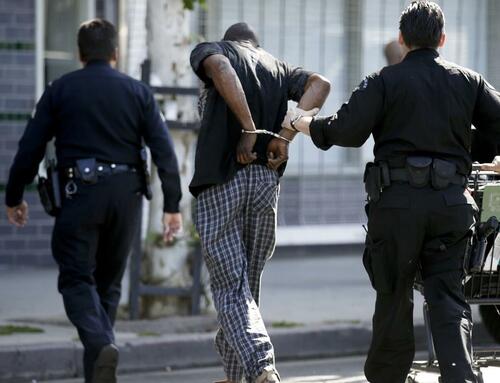Homelessness in the U.S. has reached record levels, with more than 771,000 people unhoused on a single night in 2024, according to The Conversation.
Since the Supreme Court’s June 2024 ruling in Grants Pass v. Johnson, cities have stepped up enforcement of bans on sleeping or camping in public, even when no shelter is available. The Court found such laws constitutional, ruling that the Eighth Amendment’s ban on cruel and unusual punishment does not protect homeless people from these ordinances.
The decision triggered nearly 220 new local restrictions in cities like Phoenix, Gainesville, and Reno. California, where unsheltered homelessness is highest, responded with an executive order from Gov. Gavin Newsom directing agencies to clear encampments. More than two dozen California cities soon adopted or debated sweeping bans. Not all leaders backed this approach: Los Angeles Mayor Karen Bass called criminalizing homelessness “backwards.”
San Francisco illustrates the shift.
The Conversation writes that a few weeks after the Court’s ruling, then-Mayor London Breed vowed to be “very aggressive” in clearing encampments, arguing that “building more housing” would not solve the crisis. In the year since, police arrested more than 1,000 homeless residents for living in public spaces — up from just 111 the prior year. In a 2025 survey of 150 homeless San Franciscans, 10% said they’d been jailed for lodging without permission, 6% for trespassing, and over half had been forced from at least one public space.
Portland, Oregon, took a less aggressive route. Its 2024 daytime camping ban resulted in only 11 arrests over the past year, though many unhoused people still reported being displaced or cited. One Portland resident described losing an apartment after a camping-related police stop revealed an outstanding warrant: “Many unhoused people have warrants simply for failing to appear after being cited for sitting or resting in public space,” they said. “I was supposed to go get the keys and, bam, I got picked up... Just me being in jail for five, six or five days screwed it all. I didn’t show up to get the keys, and then (the landlord) couldn’t get ahold of me, and they had no idea what was going on.”
Research shows sweeps and arrests do little to reduce homelessness, instead destroying personal belongings like IDs and medications, worsening health, and pushing people from one location to another. As one analysis concluded, enforcement drains resources that could be used for housing solutions.
The Supreme Court ruling did not require criminalization, but it gave cities the green light to do so. That shift was reinforced by President Donald Trump’s July 2025 executive order ending federal support for Housing First policies and calling for the involuntary commitment of unhoused people with mental illness.
Decades of evidence suggest punitive approaches don’t solve homelessness. Instead, they deepen poverty, increase displacement, and pull money away from the only proven solution: stable, affordable housing.
Loading recommendations...
